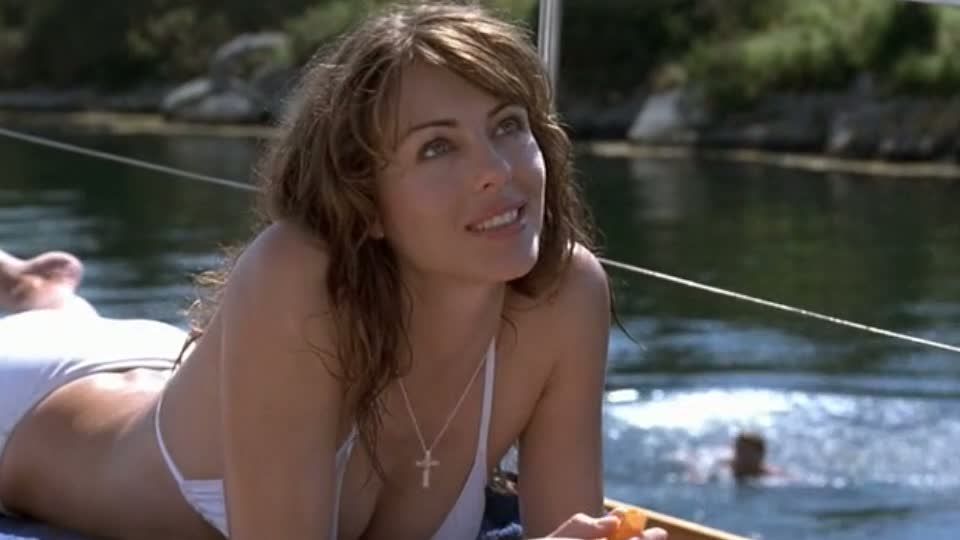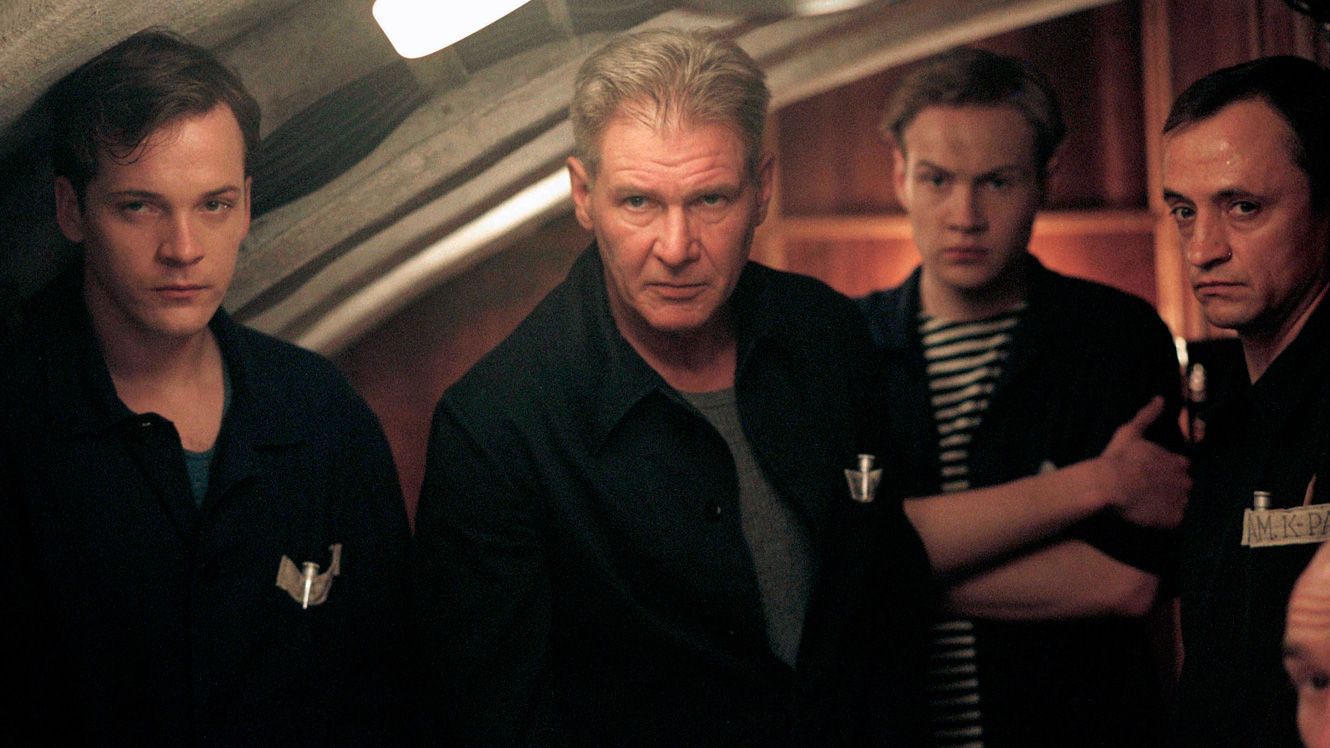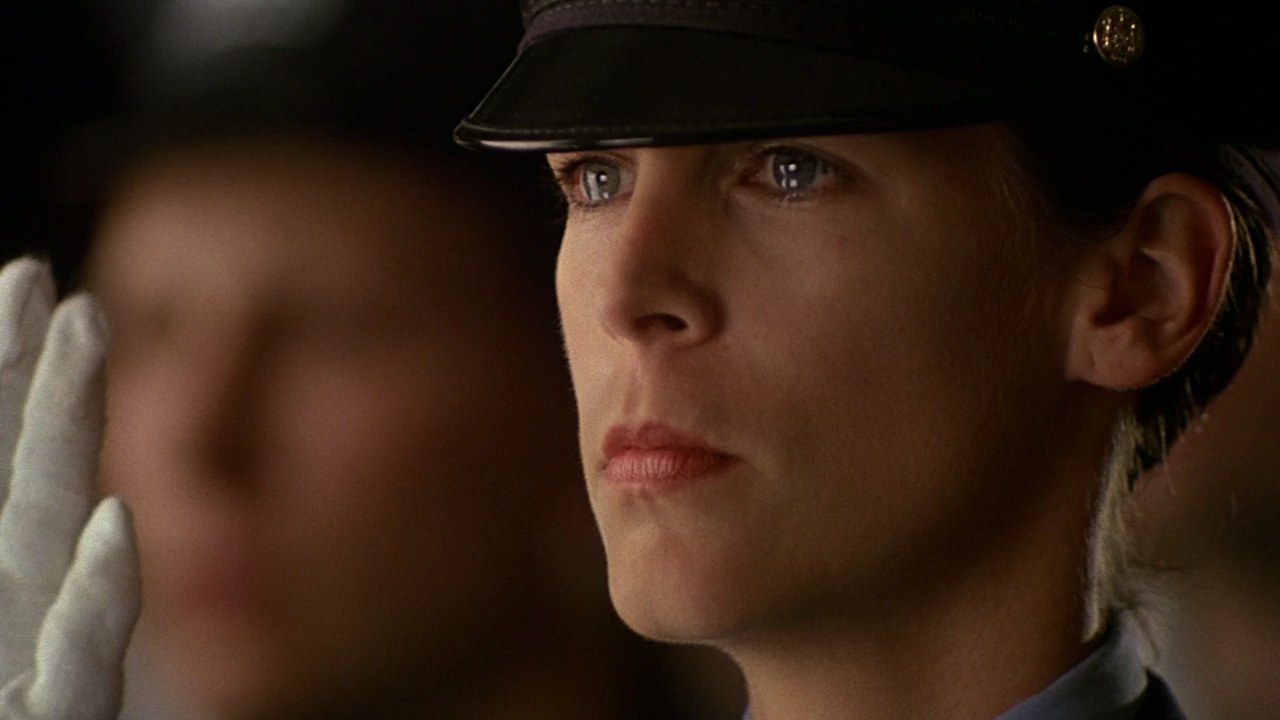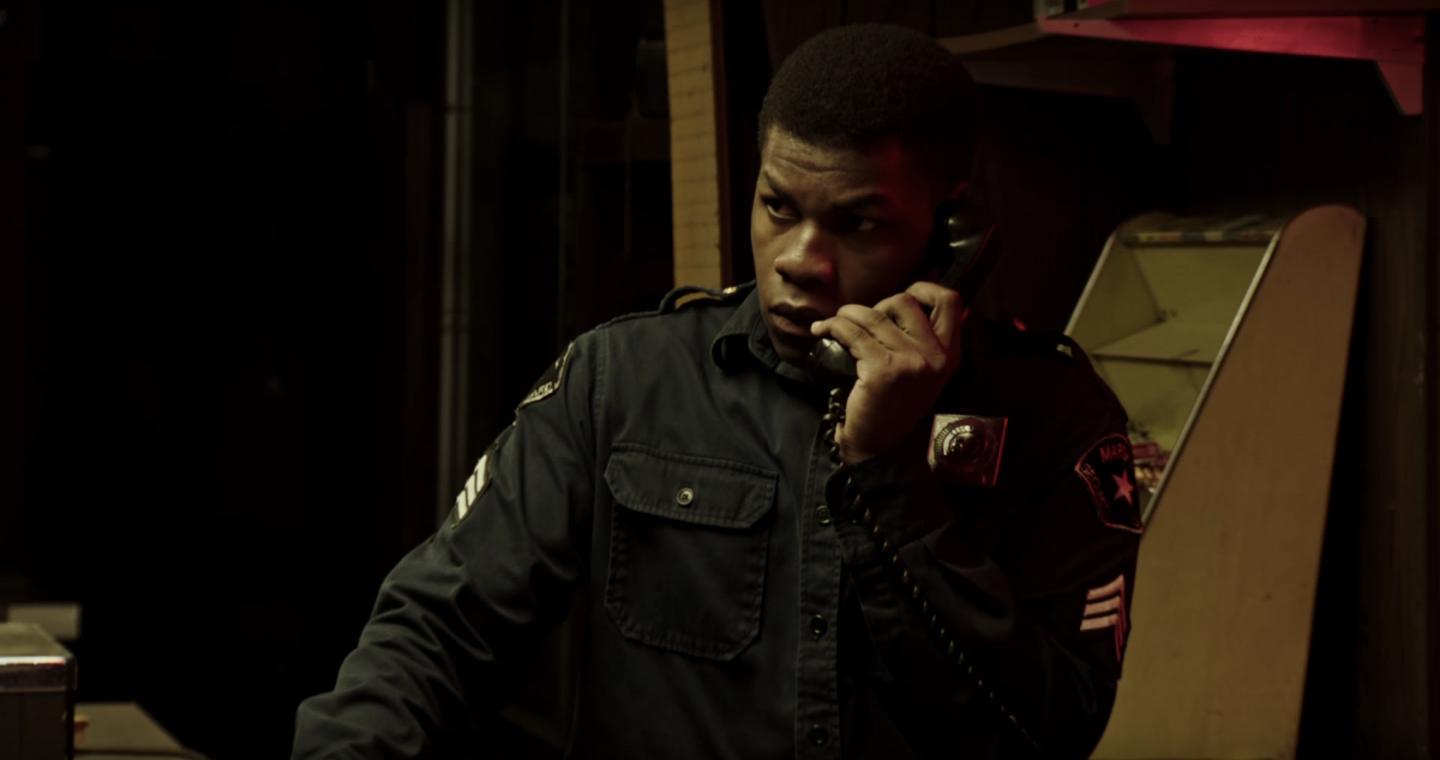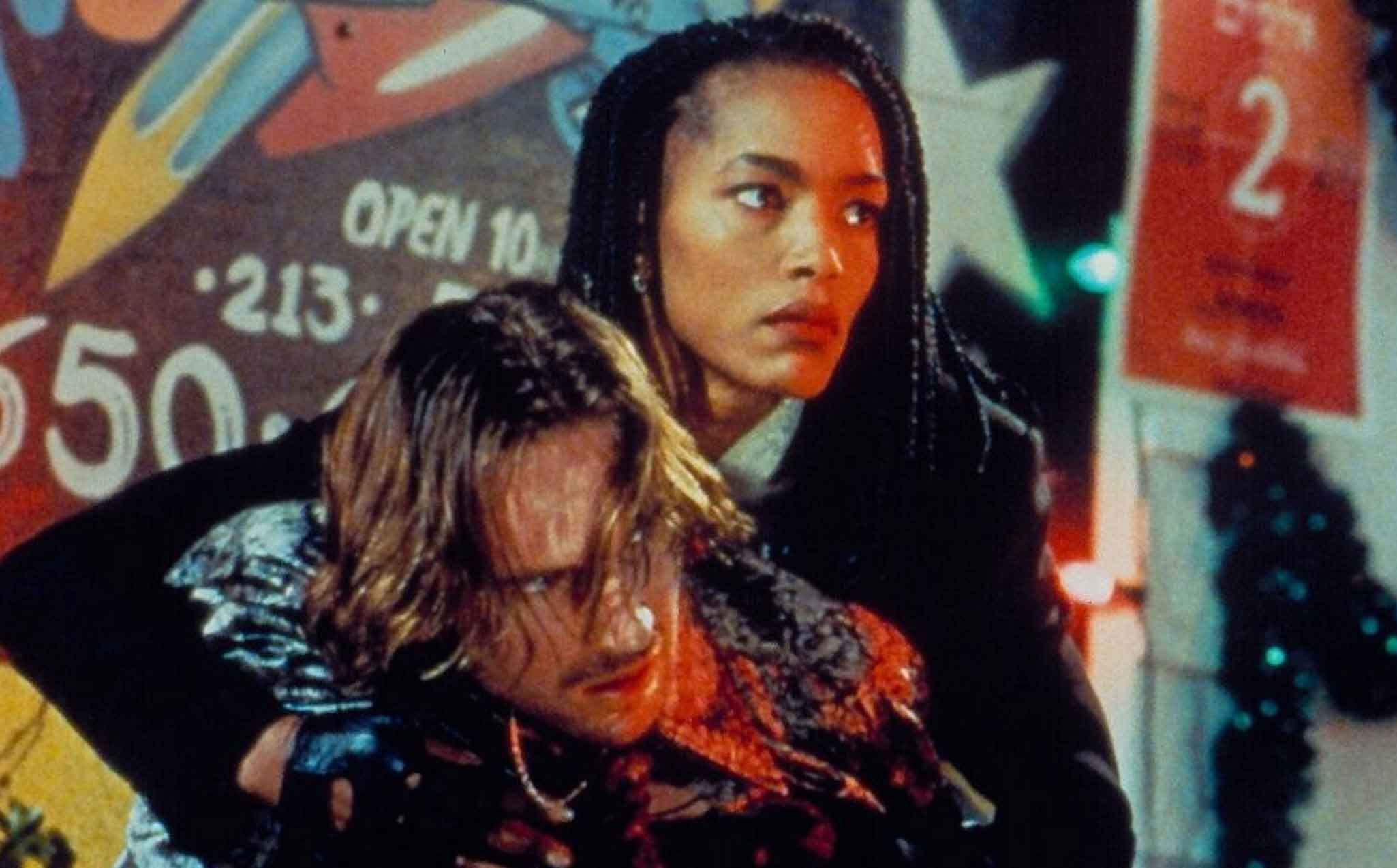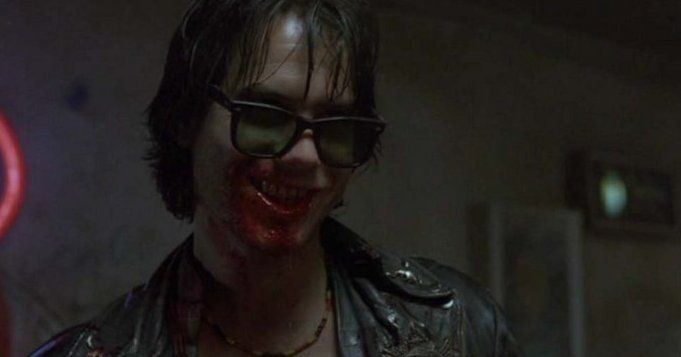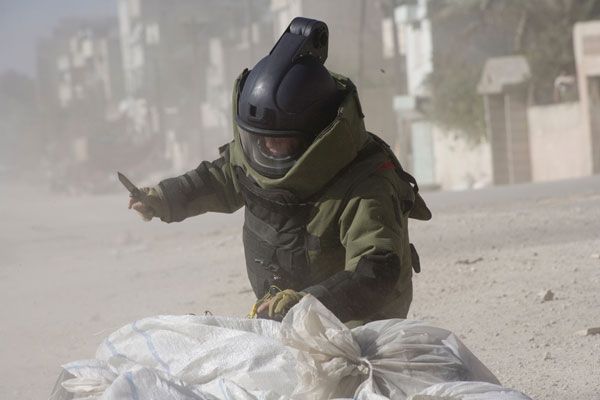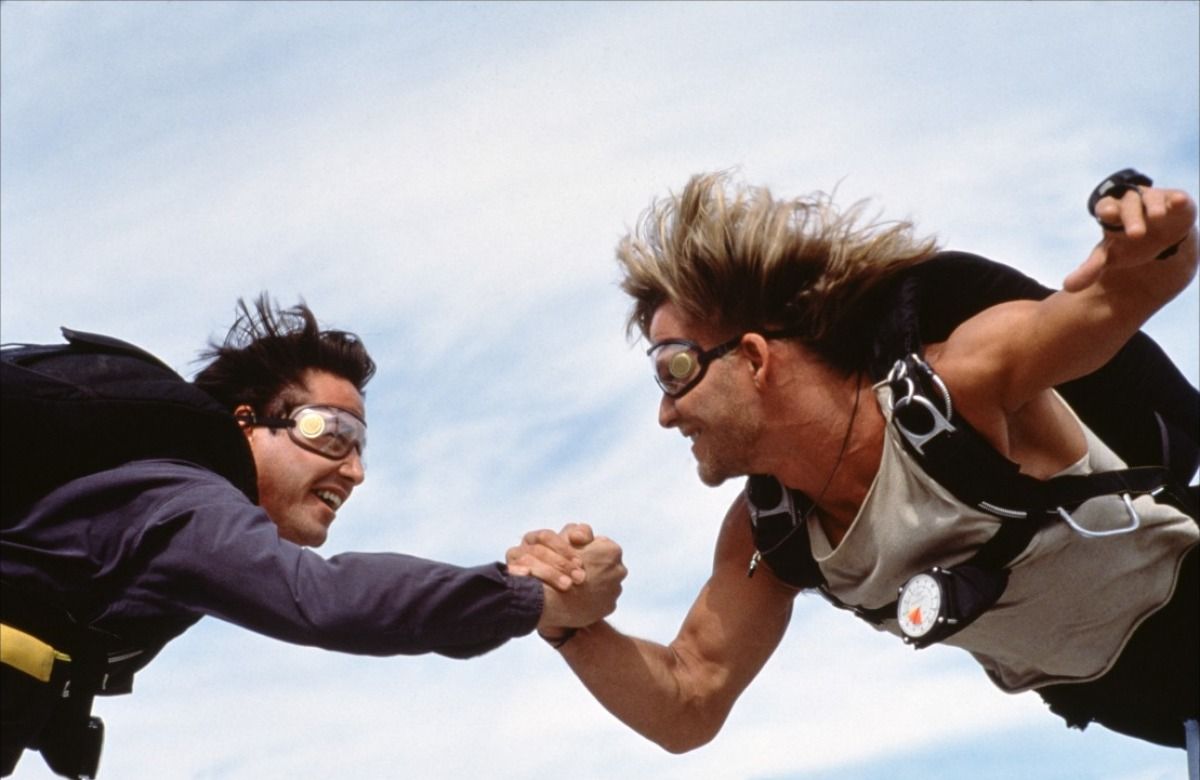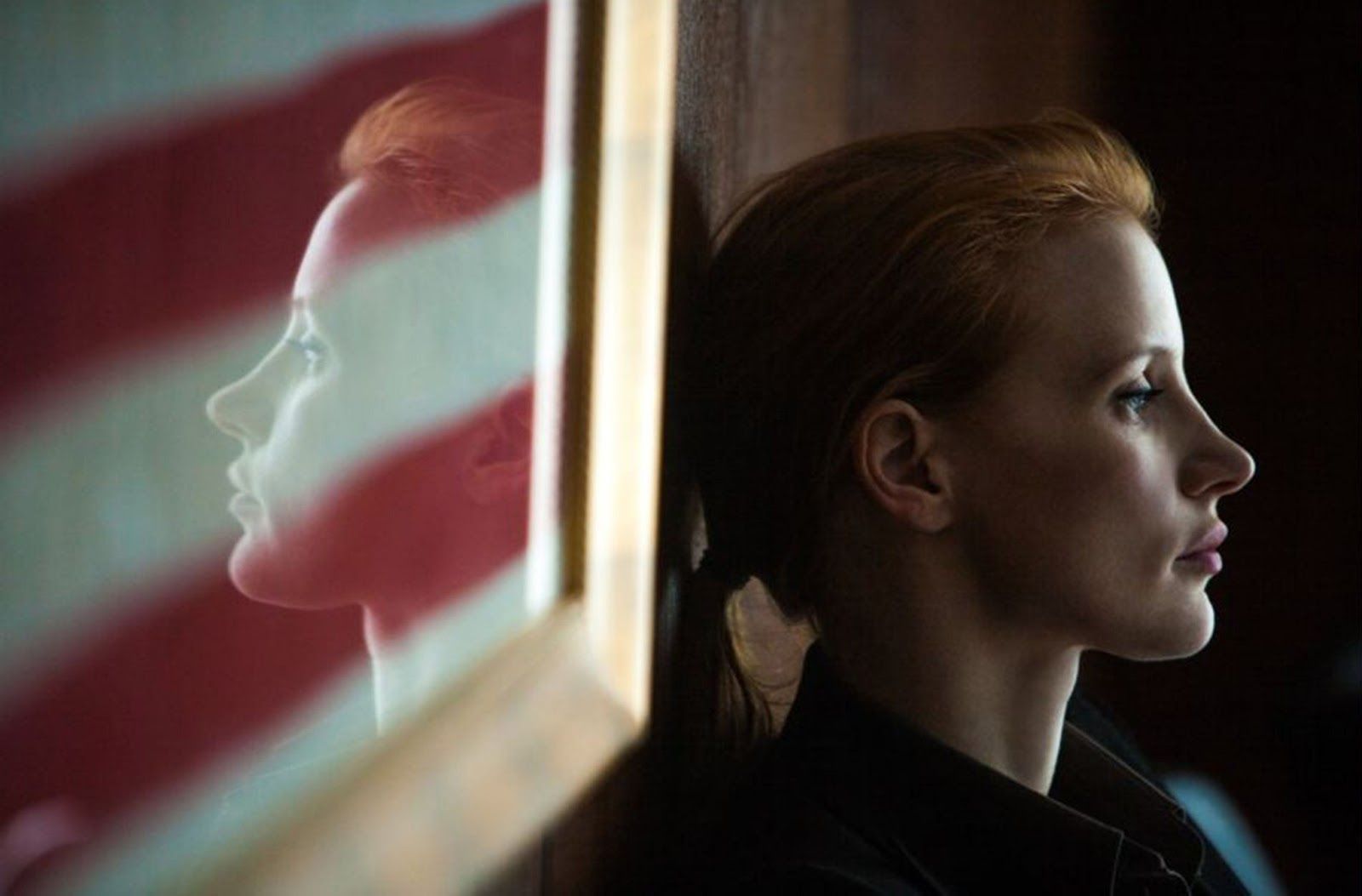Kathryn Bigelow has often been at her best when detailing the vaguely homoerotic, exceedingly intimate relationships between men, and what drives these men. This is certainly the case with Point Break and arguably with K-19: The Widowmaker too. There’s a volatile current of Oedipal details flowing underneath the action in Near Dark, and the boy’s club mentality of the military can be gleaned in fascinating flecks of dialogue and gestures in The Hurt Locker. In all these movies, including her latest film, Detroit, the way that men compete and speak with one another, whether in a combative tone or to convince someone else, is crucial to her insights on the comfort that comes from violence and its unstable nature, as well as its overall lack of substance.
From Near Dark, her first feature on her own, to Detroit, Bigelow has chronicled the bedlam of man with a steady analytical eye, making for a series of increasingly openly political films. In honor of Detroit hitting theaters wide this week, I decided to rank her filmography, only leaving off her co-directing credit for The Loveless, which is still quite good. Otherwise, everything is fair game. Enjoy!
9. 'The Weight of Water'
There’s no mistaking what Bigelow saw in this movie. The plot is centered on a middle-aged modern-day journalist, Jean (Catherine McCormack), who must balance her research into a famous murder trial and the brazen flirtations of her Pulitzer-crowned poet husband (Sean Penn), her brother-in-law (Josh Lucas), and his girlfriend (Elizabeth Hurley). As her husband leers at the girlfriend, Jean takes photos and films encounters on their boat outside of the Isle of Shoal, where the murders took place, and there’s plenty of talk about the importance of words and art, but it’s all a bit flimsy in execution. There’s no detail in the characters as written, and the flashbacks to the murder and trial feel detached from the main drama throughout. Her real subject is desire, both restrained and allowed to rein free, but she loads the screen with so much weightless talk and shifts in time that this gets lost easily and seems to matter nothing by the time the movie ends. It’s all composed and lensed very well and Bigelow’s preternatural sense of pacing is as prevalent as ever here, but you have to ignore nearly everything everyone says to get swept up in the story.
8. 'K-19: The Widowmaker'
A thrilling yet overtly classical treatment of a dark chapter in the USSR's arms race with the Americans, in which the USSR's first nuclear submarine malfunctioned on its maiden voyage. For her part, Bigelow shows a total mastery of making varied, kinetic work out of confined and limited space, splicing the drama to different sections but anchoring the nuclear-tipped conflict in the face-off between the USSR’s old, prideful guard, embodied in Harrison Ford, and the slightly more liberal new, seen in the guise of Liam Neeson. There’s a familiar classicism to the cold, dark-themed aesthetic that restrains the film a bit: the dialogue reveals little about the opinions of the time and there’s a noticeable tendency to stick close to plot turns. Still, few films are as blunt about the severe dangers of even simply testing new weapons as Bigelow's proves to be. Good war movies are scarce, and good ones from the perspective of the other side of the conflict are even more difficult to come by. K-19: The Widowmaker is a masterful throwback given only a twist in political perspective when one of style and even focus might have made for a more audacious and cutting work of art.
7. 'Blue Steel'
Bigelow has only focused primarily on female characters in three movies. One is her best, and one is her worst. Blue Steel is the third one and though it’s not the masterwork that Zero Dark Thirty is, it’s deserving of more than mild plaudits. Jamie Lee Curtis gives one of her very best performances as Officer Megan Turner, who interrupts and diffuses a hold-up at a grocery store, saving the life of finance-bro Eugene Hunt (Ron Silver) in the process. The slight to his manhood, to say nothing of facing the black abyss of death, in turn makes Hunt begin his own killing spree, one that leads back to Turner and her new man (Clancy Brown). Bigelow, herself in a classically male profession, gives Turner a fully rounded persona – she co-wrote the script with Bad Moon helmer Eric Red. If nothing else, she provides a kinetic backdrop to showcase Curtis at her most dedicated and physically tested.
6. 'Detroit'
Bigelow’s latest film, a depiction of the Detroit Rebellion anchored on the massacre at the annex on the outskirts of the Algiers Motel, is unlike anything she’s made before. Yes, it’s her first film with a majority black cast, but it’s also her most narratively unpredictable work date. The Algiers Motel sequence is the knot in the middle of the film, in which three police officers (Will Poulter, Jack Reynor, and Ben O’Toole) terrorized and randomly murdered random black patrons of the domicile due to hearing shots from a starter pistol from the annex. What Bigelow captures outside of this terrifying, exhausting sequence is life during wartime for a very specific race of people in America. Contradictions abound, injustices and everyday horrors stack up on the hour, and those who did not act against the police, including John Boyega’s security officer and Austin Hebert’s warrant officer, are left to endure their damned place alongside the police. You never quite get your bearings fully in Detroit, and perhaps that’s for the best in these particular circumstances.
5. 'Strange Days'
Bigelow’s sole venture into the realm of science fiction is a genuine stunner, unfolding in a future where visceral virtual reality experiences are everyone’s favorite illegal pastime. Former detective Lenny Nero (Ralph Fiennes) now trades discs of recorded high-octane actions, from armed theft to an endless jog up the beach, but he gets spooked when he gets an undercover recording of the LAPD executing Jeriko One (Glenn Plummer), a rapper and civil rights leader, followed by a recording of the main witness being raped and killed. Bigelow is blunt about the dark side of her often jolting, energetic filmmaking, filled with gunfights, robbery, hand-to-hand combat, explosives, and a lot of other scintillating imagery. On top of this, she forges a dark, bruised love triangle between Lenny, private security heavy Mace (Angela Bassett), and Lenny’s rockstar ex Faith (Juliette Lewis), as all three are pursued by secretive interests and an already besieged LAPD. The cast also includes Michael Wincott, Tom Sizemore, Vincent D’Onofrio, Wiliam Fichtner, and Richard Edson, making for one of Bigelow’s best casts to date, and she gives them all a prominent place in her corrupted, tech-plagued future that doesn’t look all that alien nowadays.
4. 'Near Dark'
This was Bigelow’s first collaboration with Cohen and Tate writer-director Eric Red, and it would prove to be her most memorable. There’s good reason for that, as this would prove to be Bigelow’s only horror film, unless you understandably count Detroit under that genre heading. Seduced into a traveling “family” of vampires by flirtatious Mae (Jenny Wright), Caleb Colton (Adrian Pasdar) is immediately at odds with the alpha-male, scorch-the-earth attitudes of paterfamilias Jesse (Lance Henriksen) and the beastly Severen (Bill Paxton) and Homer (Joshua John Miller). Things only worsen when Caleb is called on to help out in a grotesque slaughter at a roadside bar, and Bigelow makes much of the drama centered on obsessive, manic masculine control over all the kingdoms of the animals, supernatural and otherwise. The director prefers tension over shock and she makes the most of one of her most abbreviated runtimes, making room for blood, sex, gallows humor, and a big unhinged climax. If she were to make another horror movie, this would prove to be a tough act to follow.
3. 'The Hurt Locker'
Those who suddenly grasped the idea that Bigelow was a great director when The Hurt Locker arrived were clearly not playing attention. Her study of male vulnerability and masculine illusions can be felt throughout Strange Days, Blue Steel, and Point Break and her bravura technical work explains James Cameron’s continued endorsement, even after their relationship ended. With The Hurt Locker, Bigelow seemed to escape the trappings of B-grade genre workouts, which many of her films could have been mistaken for, by engaging with different genres – the war movie. And much like Clint Eastwood, she took the subject matter with gusto. The explosives experts, led by Jeremy Renner’s wild man, of The Hurt Locker know technical work just like Bigelow but are constantly caught off-guard by the human element, by the things that are impossible to control. Those are the things that can get you killed and Bigelow’s film not so gently confirms that there’s not much you can do about that.
2. 'Point Break'
Point Break is my favorite action film of the 1990s by a country mile. That may primarily be because its underlying focus seems to be on dismantling the legitimacy of the masculine impulses that guide most action films. Director Kathryn Bigelow sets up two opposing visions of masculinity at the center of the film: Patrick Swayze’s extreme-sports-loving outlaw Bodie and Keanu Reeves’ buttoned-up FBI agent Johnny Utah. As many have opined, the movie could be seen as an unrealized romance between the two men, as Utah goes undercover to infiltrate Bodie’s gang of presidentially-masked bank-robbers. One could run with that idea and Point Break would still work perfectly as a bracing, breathless action epic, and that’s what separates the film from much of its ilk. There’s a sadness at the center of the film that could be construed as sexual, romantic, and tied directly to straight identity. Bodie is liberated, which means he cannot live by the dictates of society, which Bigelow sees as being driven primarily by repression and uniformity. When Utah lets Bodie go at the very end, to meet his end amongst a swell of enormous waves, one can see that where Utah initially craved order, brotherhood, and discipline, he now sees the romance of oblivion that Bodie has become enraptured by. It’s a dark thought, but staring out at the crashing walls of water, it’s hard to argue the freedom that such a perspective allows.
1. 'Zero Dark Thirty'
It’s hard to shake that final shot in Zero Dark Thirty. Jessica Chastain’s Maya takes full stock of the campaign she just waged toward a triumph that now feels like a husk, wondering where she should go from here and what just happened. In short, she led a sprawling team of agents, soldiers, and bureaucrats to the fortified home of Osama Bin Laden and helped plan the assault on his compound, after watching her friends die and assholes supersede her in this endeavor. She’s accomplished something incredibly important, but it doesn’t feel important in that moment. It’s happened and evaporated.
Bigelow didn’t stick to the facts exclusively in her rendering of the steps taken to finally execute the hit on Bin Laden, but that’s neither her point nor her responsibility. Her telling is convincing yet compromised, as it should be, and more importantly highlights Maya’s place as the prime manager of the kill that thrilled nations (and angered others). In no other movie has Bigelow’s connection to the structure and substance of the material felt so palpable, the emptiness and regret of being off the job radiating with hurt in the film’s final moments. The international intrigue and interagency madness is executed with drum-top tightness, but it’s in Maya’s short expressions of being discarded by agencies upon agencies of pompous and power-hungry men that speaks most to the unexpected heart of this beast.


